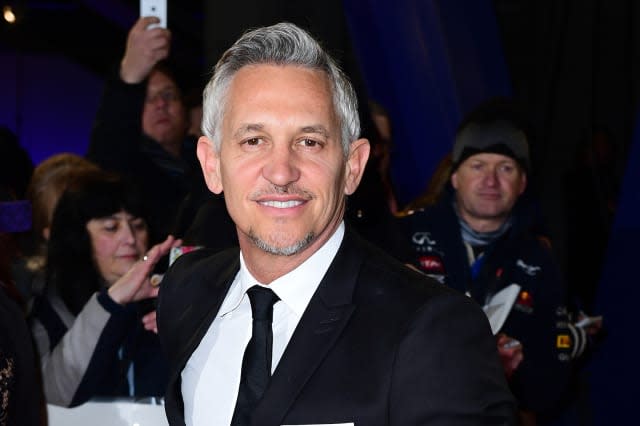BBC stars could face pay cuts if Labour wins power
BBC TV stars such as Gary Lineker could face significant pay cuts if Jeremy Corbyn becomes prime minister, a Labour source has indicated.
The source confirmed that Labour's promise of a maximum 20 to one ratio between the highest and lowest paid staff in public sector organisations would apply to those directly employed by the BBC.
The comment came after Prime Minister Theresa May said the figures released by the BBC on salaries of on-air talent showed that "there are some people who are working in the public sector who are very well paid".

Mr Corbyn made no comment on BBC salaries during the final session of Prime Minister's Questions before the summer recess, when he concentrated his attack on the Government's record on low pay.
But a source later told reporters that policies in Labour's manifesto designed to tackle income inequality - including the maximum pay ratio in the public sector, a higher income tax rate for the top 5% of earners and an excess pay levy on organisations with staff on more than £330,000 - would apply to the BBC.
Stars employed indirectly through independent production companies would not be caught by the pay ratio, he said.
The source also said that the gender pay gap exposed by the BBC figures was "obviously wrong", adding that Labour was "committed to gender equality audits enforced through law".
A senior Conservative source said Mrs May also backed action to reduce the gap between male and female pay, though he declined to say whether salaries should be raised or cut to achieve equality.
The Tory source said Mrs May was "very pleased" that the BBC has published the salary information and believed it should continue to do so.
"It is as a result of the changes that we put in place as part of the BBC charter around transparency," he said.
"It's an important thing that licence fee payers know where their money is going.
"As (BBC Director-General Lord) Tony Hall has said, it has thrown up some interesting information with regards to the gender pay gap that he wants to see tackled. We also want to see it tackled.
"We think that in order for that to happen, this is a very important tool and we would like to see the BBC continue to publish it."
Conservative former minister Anna Soubry said it was "a disgrace" that the BBC was required to disclose salaries and she could not defend Tory policy on the issue.
The Broxtowe MP told BBC Radio 5 Live Daily's Adrian Chiles: "This story is a disgrace, not because of figures but the fact that it's ever been published.
"I take objection on behalf of these people who have had their names and their salaries exposed in this completely undignified way.
"What this will do is that it will stoke up the politics of envy ... People will say, well, why is a nurse worth less than Gary Lineker or Chris Evans, and that's a completely meaningless debate.
"So the BBC should be ashamed of themselves, they should never have agreed to this, it shouldn't have been done."
Asked whether Ms Soubry was right to see the measure as part of a "politics of envy", the senior Conservative source said: "That's not what this is about at all. What we wanted to do - and that's what this whole reform was about - was ensure there is transparency at the BBC."
Labour's shadow culture secretary Tom Watson said: "The BBC is one of the world's greatest broadcasters and we shouldn't be surprised that its top stars - who millions of people tune in to watch and listen to every week - are well paid.
"Labour recognises the BBC's dilemma: the need to give licence payers value for money while operating in a competitive commercial environment against other broadcasters who do not have to disclose what they pay.
"It's wrong that only a third of the BBC's highest paid stars are women, and we welcome Lord Hall's commitment to close the gender pay gap by 2020. It would be good to see a similar commitment, and similar levels of transparency, from other media organisations - especially those who are criticising the BBC today."
Liberal Democrat deputy leader and former equalities minister Jo Swinson said the figures on the gender pay gap should act as a "really strong wake-up call".
"We need to eliminate the gender pay gap as quickly possible," said Ms Swinson.
"Making gender pay gap data transparent is vital to pierce the bubble of complacency in organisations. That is why I was so determined in 2015 to win the fight in government to introduce mandatory gender pay gap reporting.
"That means that not only do we know the picture in the BBC, soon we will be able to see how other media organisations compare."


